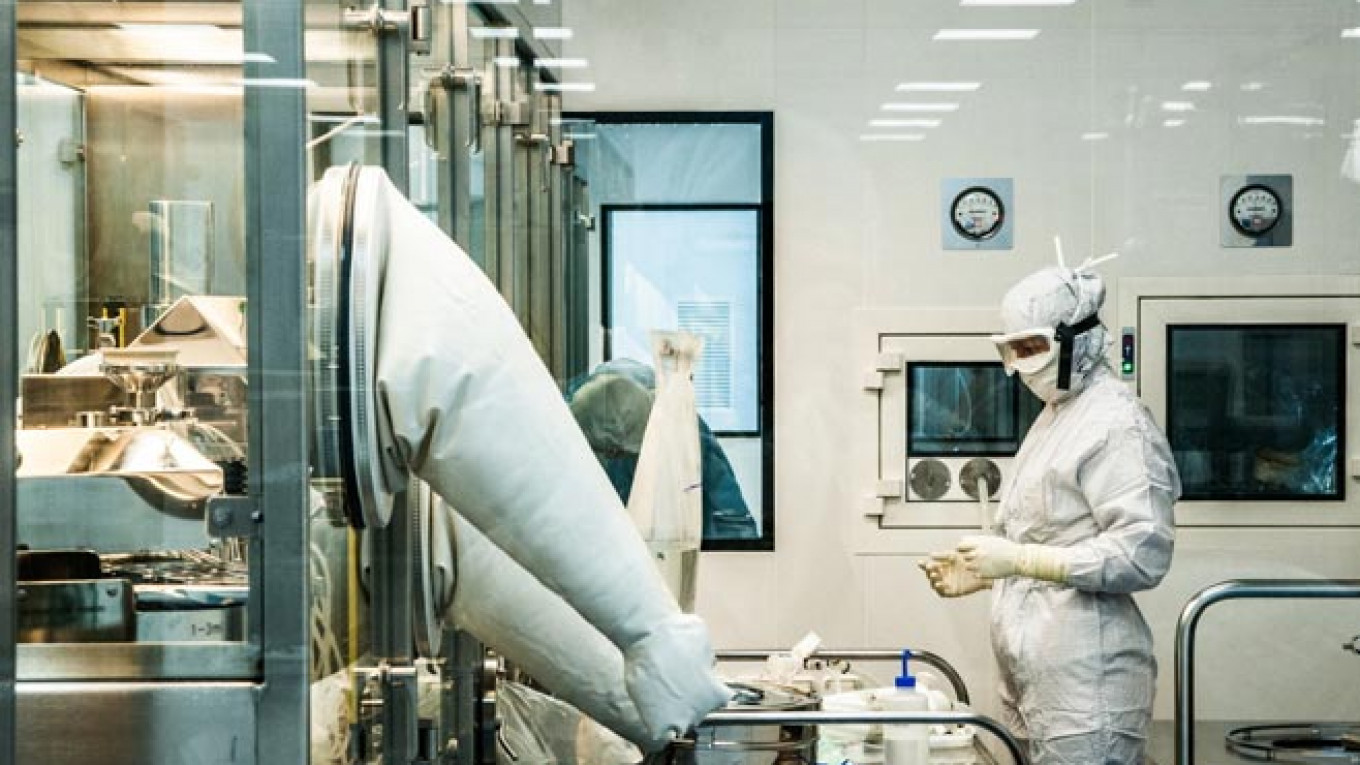POKROV, Moscow Region — U.S. pharmaceutical giant Pfizer on Wednesday showed off its efforts to produce its Prevenar 13 vaccine locally, ahead of a potential government tender that could give the U.S. company millions of new customers.
Western drugmakers have been making inroads in Russia, either building their own plants, setting up joint ventures that own plants, or hiring local producers to make drugs for them, as Pfizer has done.
As part of the partnership with Petrovax, Pfizer helped set up a production line that the company dubbed the most technologically advanced operation involving a foreign pharmaceutical company in Russia.
“It is the only facility for contract production that is of such landmark importance by the amount of local content and sophistication of manufacturing process,” said Leon Kogan, Pfizer’s senior director for business development. “It demonstrates Pfizer’s seriousness about the Russian market.”
Pfizer also gave Petrovax the technology to make the vaccine against such diseases as pneumonia and meningitis, and contracted them for production beginning in 2012 of pneumococcal vaccines.
Beginning this year, the government has included pneumococcal infection on its list of viruses that require mandatory vaccination that will be funded by the federal budget. The move means a competitive bidding for a vaccine is in the offing, and Pfizer said it could offer its product.
Only locally produced vaccines may compete for these types of tenders.
The market for the pneumococcal vaccine in Russia is significant, as 1.7 million children will be eligible to take the vaccine.
Sales as part of the government-funded program, which for now includes only children, could then triple, as a total of three injections are required to achieve a permanent effect.
Pfizer’s local production at a plant 16 kilometers south of Moscow could cover all those needs, Kogan said.
The production unit at Petrovax sources the Prevenar 13 vaccines’ main ingredients, which are various types of the pneumococcal bacteria, or serotypes, from Pfizer’s two U.S. plants in North Carolina and Massachusetts, and one in Ireland.
The vaccine was imported from Pfizer’s plant in Ireland and Britain before the local line kicked in.
The vaccine, which comes in disposable syringes, is often prescribed to people 50 years of age and above, a demographic that in Russia constitutes a population of 49.6 million as of January 2013.
For now, Pfizer sells the vaccine to 49 regional health care authorities, including Moscow and the Moscow region, which have instituted their own vaccination programs.
Pfizer is Petrovax’s biggest foreign partner. The company also cooperates with Abbot and Sanofi, U.S. and French pharmaceutical companies respectively. Petrovax came under control of billionaire Vladimir Potanin earlier this year.
Petrovax’s product line prominently features Grippol Plus, a flu vaccine.
Contact the author at medetsky@imedia.ru


